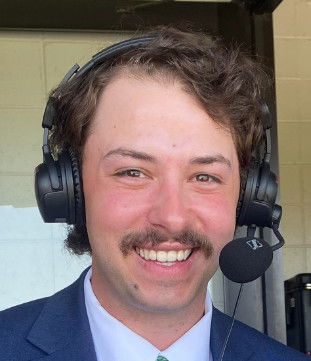
Commentary: Jed Hoyer isn't the only one to blame |
The dust has finally begun to settle on the massive deals made by Jed Hoyer, and the Cubs at the July 30th trade deadline that saw the organization say goodbye to a trio of franchise legends in Anthony Rizzo, Kris Bryant, Javier Baez, and more.
Of course, those three played crucial roles during the Cubs’ magical run to capture the 2016 World Series Championship, the organization’s first such title in over 100 years at the time. For the amount that those three players and more gave to this city and the organization, many did not expect them to ever don a different uniform than the Cubbie pinstripes. But in a span of 24 hours, all three of them were shipped across the country in exchange for prospects — signaling that the Cubs are in rebuild mode once again, if nothing else. The frustrating part for Cubs fans is that none of those players were able to be extended by the Chicago Cubs, putting the Cubs into another painful situation of not trying to win despite being one of the league’s richest teams — all while still paying the highest price in the MLB for tickets, and while the organization pours money into the stadium, the neighborhood and other resources besides the team on the field. For many, the blame immediately goes to Jed Hoyer for not being able to extend any of these core players and trading Yu Darvish, Victor Caratini, Joc Peterson, Andrew Chafin, Ryan Tepera, Anthony Rizzo, Craig Kimbrel, Javier Baez, Trevor Williams, Kris Bryant, Jake Marisnick and letting Kyle Schwarber and Jon Lester walk — giving the Cubs a much different look and a 2-9 record since the July 30th trade deadline. However, the industry feedback on the returns Jed Hoyer was able to net for these players has been largely positive. In fact, one rival executive said that Hoyer did “annoyingly well” at this year’s trade deadline. But there is no doubt that the wheels have fallen off the team that won over 100 games and a World Series just five seasons ago. So who is to blame for the falloff and fire sale that took place on the Northside? A large answer to this question is Tom Ricketts, the Cubs owner who chose not to invest as much into the team on the field but rather into resources around the stadium. There continue to be investments involving the Cubs — hotels, restaurants, rooftops, a sportsbook, and a Cubs Hall of Fame. However, the Cubs were somehow unable to sign a position player free agent more expensive than Daniel Descalso for the longest time. The Cubs cried poor over various offseasons, most memorably when the Cubs couldn’t fulfill Bryce Harper’s wish of playing for the Cubs with his childhood friend Kris Bryant. Speaking of Bryant, the Cubs were either unable to afford or agree with long-term extensions for Bryant, Anthony Rizzo, or Javier Baez, who are now playing for different teams. Since Ricketts is the man who oversees all financial decisions and can approve budgetary expansions or order budgetary cuts, he has been the popular (and right?) man to blame for the Cubs’ massive sell-off and lack of spending post World Series. In addition, Jed Hoyer was the man who was unable to extend any of these members of the World Series core with a last-ditch effort — and will forever be known for trading away some of the most influential, important, and beloved players the organization has ever seen. As a result, many fans have thrown some of the blame onto Hoyer for this painful fallout. But someone who should receive some of the blame and has flown quietly under the radar through all of this has been former President of Baseball Operations Theo Epstein. While Epstein was the conductor behind constructing the roster that broke the 108 year World Series drought — what happened after the championship led to the situation the Cubs are in now. Epstein spent money and prospects on Jose Quintana, Tyler Chatwood, Yu Darvish, Daniel Descalso, Brandon Morrow, Craig Kimbrel, and more after the World Series — each move ended up being very costly — with only Darvish and Kimbrel netting the Cubs any type of eventual return. In negotiations, Epstein was unable to get Rizzo, Bryant, Baez, Schwarber, or Contreras to sign back with the team long term. After the 2017-2020 season, where the Cubs disappointingly failed to live up to expectations, Epstein threatened to make big roster changes and never did. Those empty threats also came with the Ricketts family ordering Epstein to operate with thin pockets — and all of a sudden, the Cubs had a new manager, a team with almost 20 impending free agents, and a President of Baseball Operations in his final season? Instead of taking on the challenge of beginning to rebuild the next great Cubs team, Epstein stepped down — leaving Hoyer with his job and the daunting challenge of rebuilding again, plus the task of having to trade some of these heroes. Was Epstein truly done in front offices and looking to work for MLB to own a team? Or was he trying to protect his legacy in Chicago? At the end of the day, Epstein’s place in Cubs’ lore is safe for sure, and it's not all his fault that the Cubs are now sitting in fourth place. This is a culmination of many mishaps organization-wide, but Epstein is not clear of some blame here.





